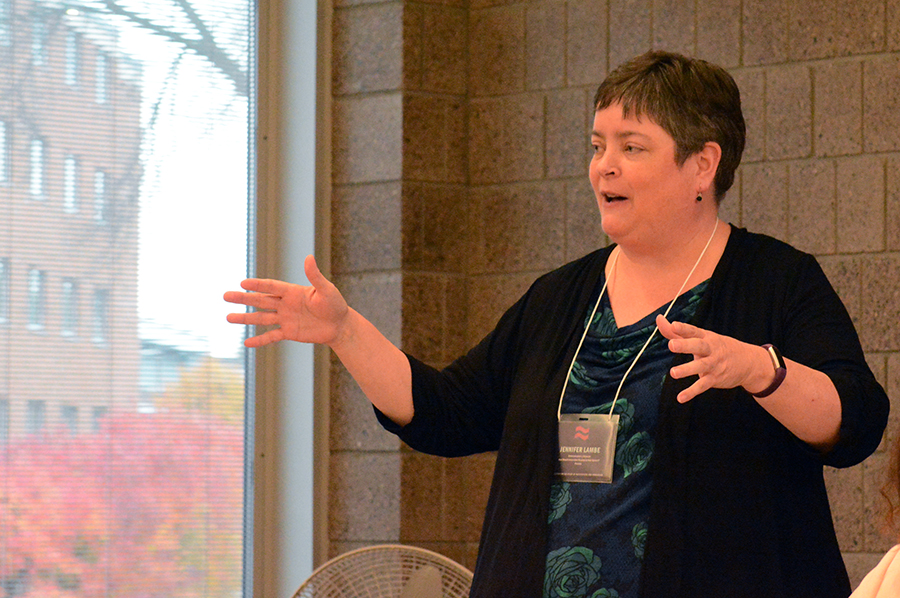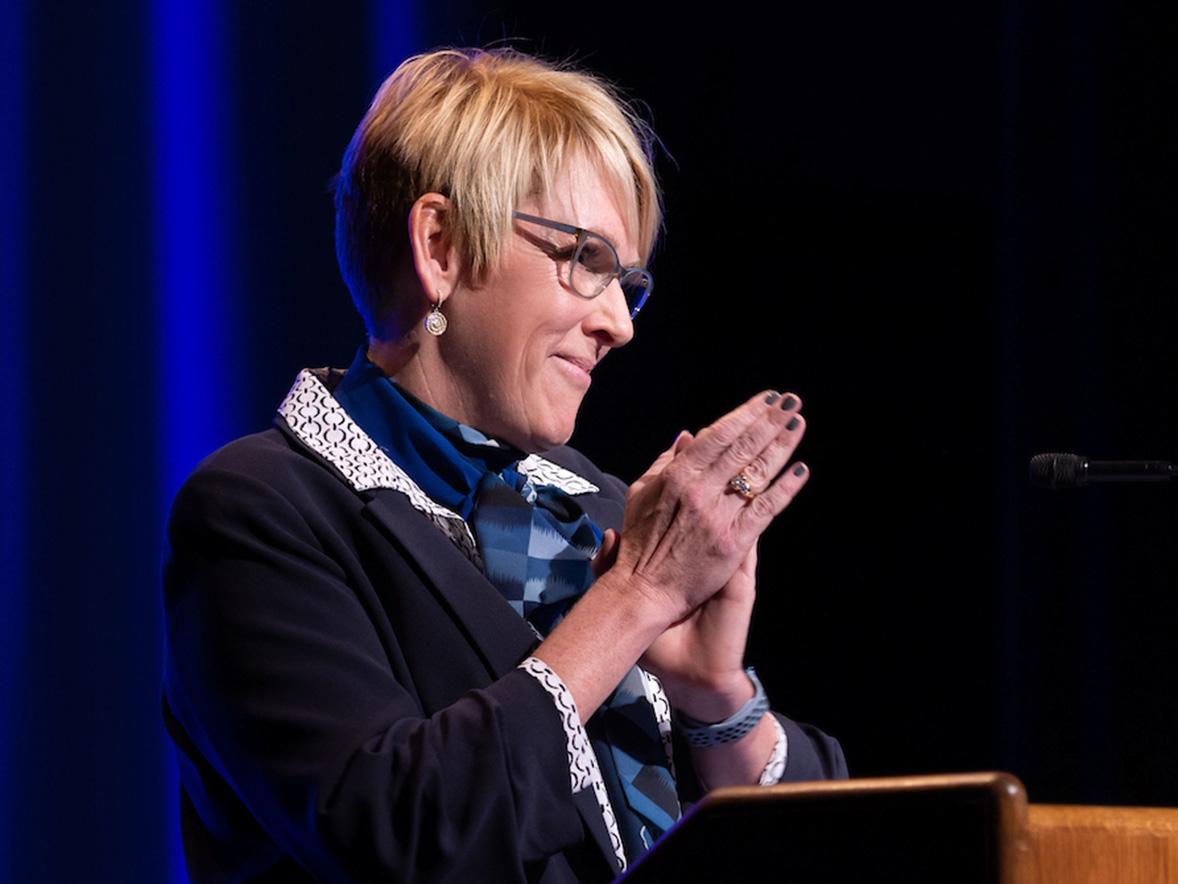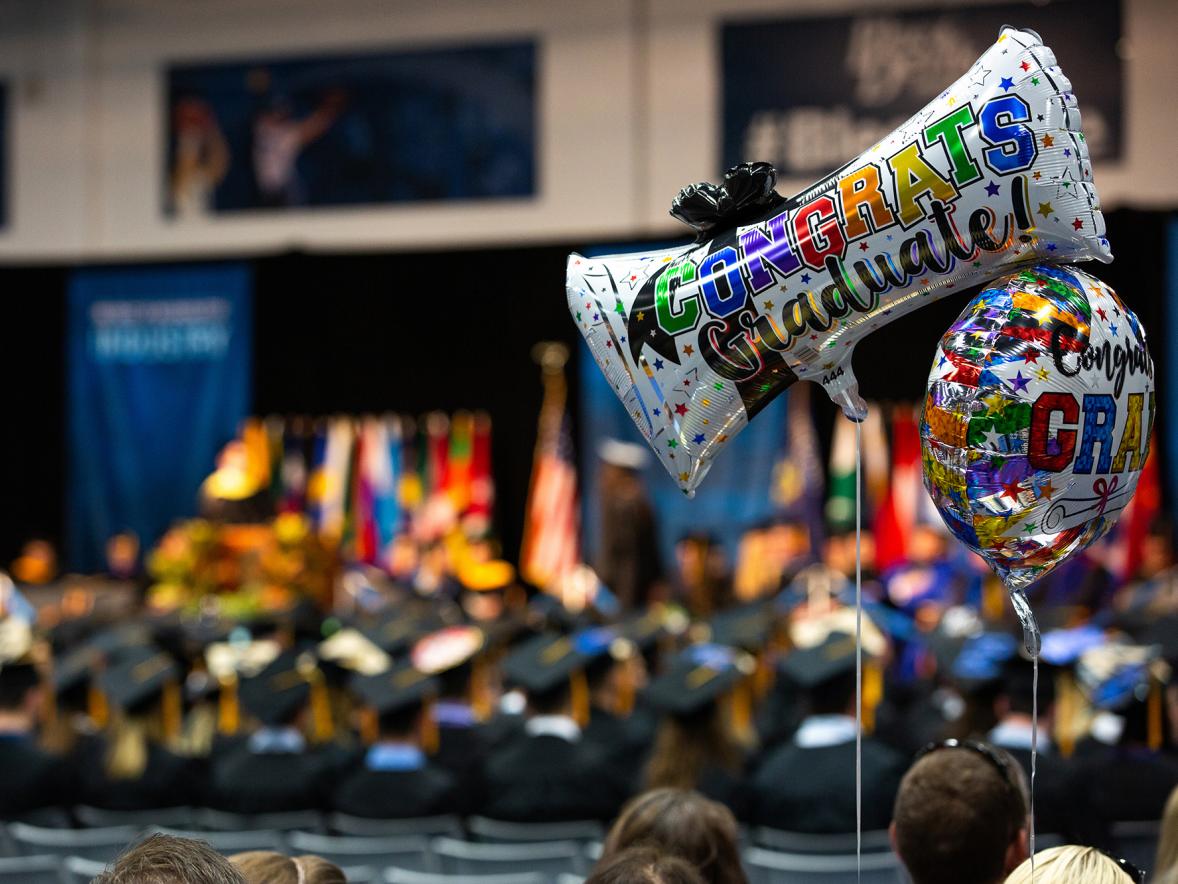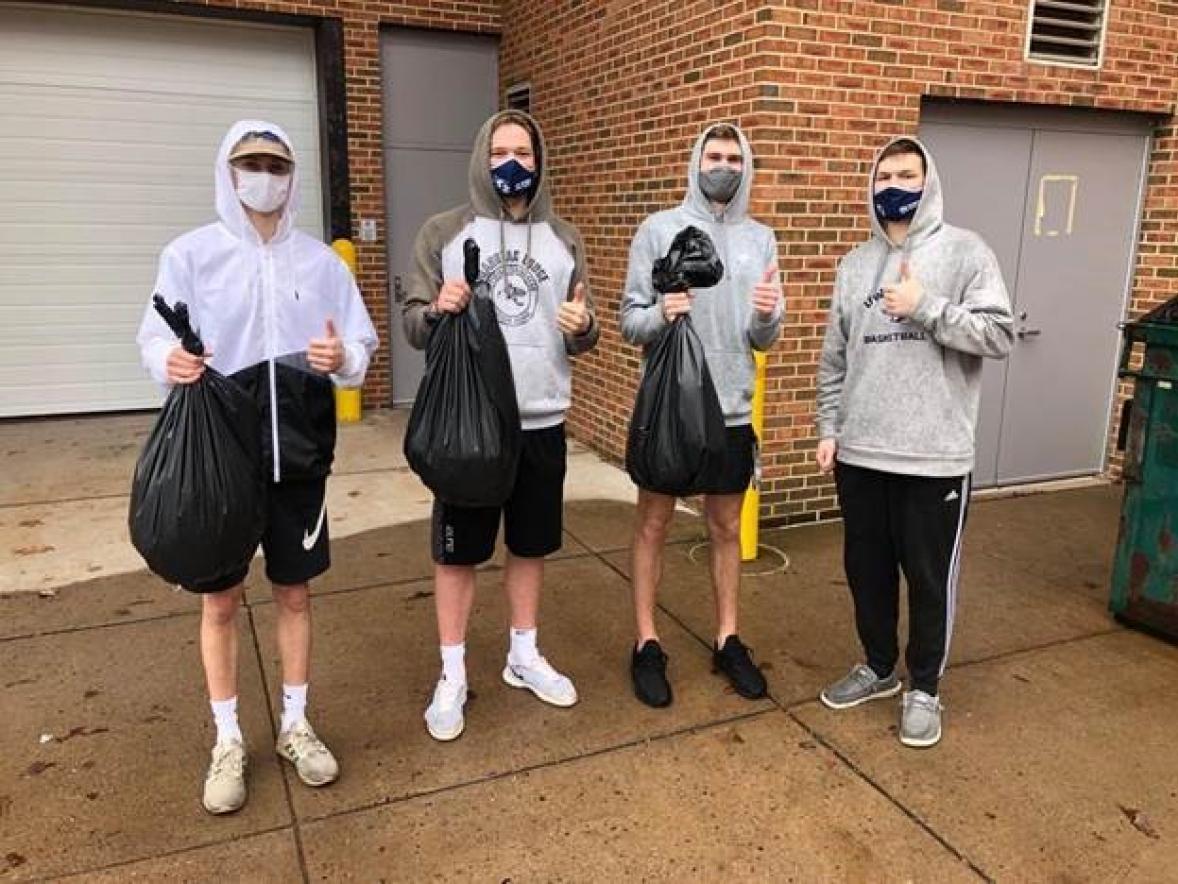Not everyone will agree and different opinions should be encouraged, according to speakers Tuesday during a panel discussion, How Should Universities Respond to Hate Speech? at University of Wisconsin-Stout.
“Each student deserves an opportunity to learn within a safe environment,” said Dominique Vargas, UW-Stout associate dean of equity, diversity and inclusion. “When safety is an issue, the university needs to get involved.”
Vargas was on the panel as part of Free Speech Week events, which continue through Thursday, Oct. 24, on campus. Also on the panel was Jennifer Lambe, associate professor of communications at the University of Delaware. The moderator was UW-Stout interim Chancellor Patrick Guilfoile.

UW-Stout has a Bias Response Team to investigate reported bias or hate incidents. “Most often bias incidents are dealt with in an educational manner,” Vargas said. “Most of the time there is a need for understanding rather than a firm reprimand. If a crime is involved, there is the potential for firmer repercussions.”
There were 22 individual incidents of bias reported last year at UW-Stout, Vargas said, noting she believes that at UW-Stout, like the rest of the nation, not all incidents are reported. However, reporting helps the university target where issues of bias are occurring and where to place more educational emphasis, she noted.
Guilfoile said his understanding is that there are only absolute actions if there is an immediate threat of violence. “Generally, as an educational institution, our goal is to educate students and help students understand,” he said.
During first-year orientation, students are given information on their First Amendment rights and freedom of expression, Vargas said.
Lambe said universities and colleges must continue to have conversations about the importance of freedom of expression and to think critically about hate speech. “You have to look at the intent of the speaker,” Lambe said. “Make resources available and ongoing efforts. Education has to be subtle, though. It can’t be heavy-handed.”
Student leaders can help establish norms for the campus and help educate other students about what is appropriate language on campus, he said.
On Thursday, Oct. 24, from 4 to 5:30 p.m. in Ballroom A of the Memorial Student Center, there will be a panel discussion on Free Speech, Social Media and Universities. Panelists include Joe Cohn, legislative and policy director of the Foundation for Individual Rights in Education; Franciska Coleman, law, Kansas; and Eric Kasper, political science and the director of the Center for Constitutional Studies at UW-Eau Claire. The panel will be moderated by Sandra Scott, UW-Stout dean of students.
Other discussions during Free Speech Week have focused on academic freedom, corporate speech rights and free speech and civil rights. The goal of the week is to bring issues and different perspectives to people’s attention and to empower people to speak up and out about issues.
Free Speech Week is sponsored by the Center for the Study of Institutions and Innovation. The idea for Free Speech Week started after a survey found limited knowledge of what the First Amendment means, yet people wanted more education on it.
UW-Stout is Wisconsin’s Polytechnic University, with a focus on applied learning, collaboration with business and industry, and career outcomes.
###
Photos
UW-Stout Associate Dean of Equity, Diversity and Inclusion Dominique Vargas talks about the importance of providing safe learning environments for students during a Free Speech Week event at UW-Stout. / UW-Stout photos by Don Steffen
Jennifer Lambe, University of Delaware associate professor of communications, was also part of the panel on How Should Universities Respond to Hate Speech?







